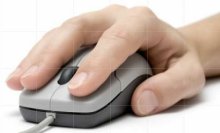Diabetes is a persistent problem that affects countless individuals worldwide. It is defined by high degrees of sugar (sugar) in the blood, which can bring about different health and wellness complications if left untreated. Early discovery and correct administration of diabetes mellitus are essential for preserving general health and wellness as well as well-being. In this write-up, we will certainly go over the different methods of screening for diabetes, consisting of self-monitoring in the house and specialist clinical tests.
1. Self-Monitoring Blood Sugar (SMBG)
Self-monitoring blood glucose (SMBG) is a hassle-free and efficient means to keep track of blood sugar degrees at home. It involves making use of a glucometer, a tiny device that gauges sugar levels in a droplet of blood gotten by pricking your finger with a lancet. Here’s just how to do SMBG:
Action 1: Laundry your hands completely with soap and water, after that completely dry them.
Step 2: Prepare the lancet tool by placing a brand-new lancet right into the tool.
Step 3: Place a test strip into the glucometer according to the maker’s instructions.
Step 4: Use the lancet tool to puncture the side of your fingertip gently.
Tip 5: Touch as well as hold the test strip to the blood bead up until the glucometer presents the sugar reading.
Step 6: Record the sugar analysis in a logbook or on an electronic tool for future referral.
- Tips for SMBG:
- Adhere to the directions offered with your glucometer and test strips.
- Keep an enough supply of lancets, test strips, as well as alcohol swabs handy.
- Check the expiry dates of your test strips consistently.
- Carry out SMBG at regular times of the day to track any type of patterns or variations.
2. Hemoglobin A1c (HbA1c) Examination
The Hemoglobin A1c (HbA1c) test supplies a lasting standard of blood glucose degrees over the previous 2-3 months. It determines the percent of sugar connected to hemoglobin, a protein in red blood cells. The HbA1c examination is typically done by healthcare experts in a clinic or laboratory setup. Right here’s what you can expect during an HbA1c test:
Action 1: You will certainly be asked to see a clinic or lab that uses the HbA1c examination.
Step 2: A healthcare expert will attract a blood sample from your arm using a needle.
Action 3: The blood example will be sent to a research laboratory for analysis.
Tip 4: Outcomes are usually readily available within a few days, and your healthcare provider will talk about the findings with you.
- Tips for the HbA1c Test:
- Fasting is not required for this test, so you can drink and eat customarily before the consultation.
- Notify your healthcare provider concerning any kind of medications or supplements you are taking, as they may impact the test results.
- Adhere to any kind of pre-test directions offered by your healthcare provider, such as avoiding too much exercise or alcohol consumption.
- Talk about the outcomes with your healthcare provider to establish the ideal administration plan for your diabetic issues.
3. Dental Sugar Tolerance Test (OGTT)
The oral sugar tolerance examination (OGTT) is made use of to diagnose gestational diabetes or assess impaired sugar resistance. It measures exactly how your body processes sugar with time. Below’s what you can anticipate during an OGTT:
Step 1: Your doctor will ask you to fast for at the very least 8 hours prior to the examination.
Action 2: A standard blood sample will be taken to measure your fasting glucose degree.
Step 3: You will be asked to consume alcohol a glucose solution having a particular amount of sugar.
Step 4: Blood examples will be taken at routine periods, typically every 30-60 mins, to check your body’s response to the glucose.
Step 5: Results will be examined by your doctor to identify if you have gestational diabetic issues or impaired sugar resistance.
- Tips for the OGTT:
- Follow the fasting instructions provided by your doctor.
- Educate your healthcare provider concerning any kind of medicines or supplements you are taking, as they might interfere with the test results.
- During the test, attempt to stay unwinded and avoid excessive exercise.
- Talk about the results with your doctor enerflex for additional assistance and also administration.
Conclusion
Testing for diabetic issues is important for very early detection, administration, and also avoidance of difficulties. Self-monitoring priapus sitio oficial blood sugar (SMBG) offers a hassle-free way to keep track of blood sugar degrees at home, while professional clinical examinations like the Hemoglobin A1c (HbA1c) examination and also the dental glucose resistance test (OGTT) supply even more extensive evaluations. By frequently checking for diabetes as well as working carefully with medical care experts, people can take control of their wellness as well as make informed choices to manage their problem efficiently.
Please note:
This article is for informative objectives only and need to not change clinical advice. If you believe you have diabetes mellitus or have issues concerning your health and wellness, consult a certified medical care professional for an exact diagnosis as well as individualized support.

